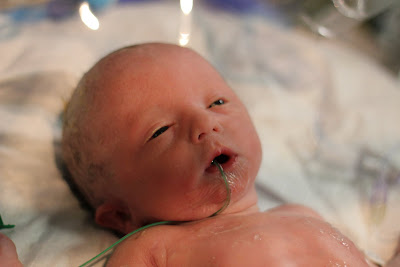Trisomy 18,
also known as Edwards syndrome, is a condition which is caused by a chromosomal
defect. It occurs in about 1 out of every 3000 live births. The numbers
increase significantly when early pregnancy losses are factored in that occur
in the 2nd and 3rd trimesters of pregnancy.
Children
with Trisomy 18, also known as Edwards syndrome, have an extra copy of
chromosome 18, which causes symptoms like clenched hands, low birth weight,
mental deficiency, small head and jaw and an unusual-shaped chest, according to
the National Institutes of Health.
“Most
children with Trisomy 18 die in the first three months of life, and only 10 to
20 percent survive past the first year,” said Dr. Robert Marion, Chief of
Genetics and Developmental Medicine at Children’s Hospital at Montefiore and
Albert Einstein College of Medicine.
Tests can be
done during pregnancy to determine if the child has Trisomy 18. Half of infants
with this condition do not survive beyond the first week of life, and the few
children who survive to the teenage years have serious medical and
developmental problems, according to the National Institutes of Health.
“Those who
survive are almost always girls,” said Marion. “The reason for this is that the
condition is more lethal in boys, who die intrauterinely.”
Dr. Ronald
Crystal, chair of genetic medicine at Weill Medical College of Cornell
University in New York City, said the disease is “invariably fatal,” with
survival depending on the severity of symptoms and the quality of care. Bella
Santorum, 3, is “already an exception,” he said.
What can you
do:
There are
several things you can do to support your friends. First, learn as much as you
can about Trisomy 18. See What is Trisomy 18 to understand what your friend is
facing. The effort you make to learn will speak volumes to your friend.
Reading
stories and seeing pictures of other families in their Legacy Pages, as well as
in our Family Profiles section may help you understand better what your friends
may be dealing with, and may give you good ideas of how to help your friends.
Another
thing you can do is learn more about grief. A good way to do this is to read
some of the information in the Remembering a Child section of this site. Read
The Journey, which describes what grief is like. Another good resource is How
to Help a Friend Who is Grieving, written by a mom who lost her daughter to
Trisomy 18.
We also have
an online community where you can interact with other families and ask them
questions directly about their experiences. There is also a section especially
for family and friends. See the Online Support Community home page for more
information about this community and how you can join it. Of particular
interest will be the Friends and Family board.







